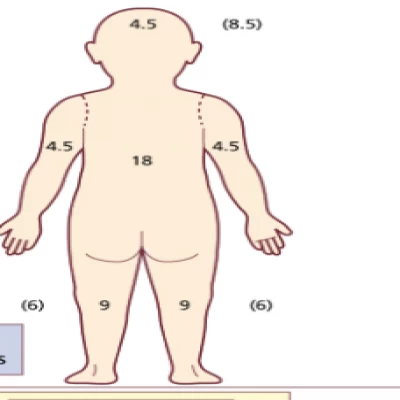مجلات علمية

In the seasonal Influenza 2020 epidemic wave. Vaxigrip 2020 vaccine was indicated for the prevention of influenza disease caused by influenza-A and influenza-B viruses most circulating.
Vaxigrip 2020 tetra was the most frequently used type of vaccination for influenza viruses.
The two influenza-A virus subtypes and the two influenza-B viruses subtypes contained in the vaccine are the most frequently detected subtypes in this season (circulating strains).
It usually takes two to three weeks for the vaccine to protect against influenza viruses, and the protection lasts for 6 months to 1 year.
Brand name of vaxigrip vaccine:
For adults: Vaxigrip tetra.
For children: Vaxigrip junior.
Active principles of vaxigrip tetra:
Influenza virus vaccine, quadrivalent( two influenza-A subtypes and two influenza-B subtypes which are most likely to be circulating this year ), split virion (inactivated).
What's the use of vaxigrip 2020 tetra?
It's used for:
1- Active immunization of adults including pregnant women.
2- Active immunization of children from six months of age and older.
3- Passive immunization of infants from birth to less than six months of age following vaccination of pregnant women.
What should you know before using vaxigrip 2020 tetra ?
1- People who have had allergic reactions to vaxigrip tetra or any of its ingredients listed in the CMI (consumer medicine information), shouldn't use it.
2- Talk with your doctor or pharmacist about any other medical conditions or if you are taking any other medications.
3- If you are pregnant or planning to become a pregnant or breastfeeding mother, talk to your doctor or pharmacist before having the vaxigrip 2020 tetra vaccine.
Drug interactions with vaxigrip 2020 tetra vaccine:
Some medications may interfere with the efficacy of the vaxigrip 2020 tetra vaccine and affect how it works, so if you are taking any other medications, tell your pharmacist or doctor.
Drugs may interact with the vaxigrip tetra vaccine:
1- Acetaminophen (Paracetamol).
2- Other MAB(monoclonal antibodies) may interfere with vaxigrip, ex.: Belimumab, Infliximab, Rituximab.
3- Immunosuppressive drugs as:
★Cyclosporine.
★Azathioprine.
★Mycophenolate.
★Corticosteroids, such as:
Budesonide, dexamethasone, hydrocortisone, Prednisone, prednisolone, and fluticasone.
★Tacrolimus.
4- Anticancer drugs:
★Cyclophosphamide and ifosfamide.
★Doxorubicin and daunorubicin.
★Carboplatin and cisplatin.
★Vincristine and Vinblastine.
★Etanercept.
★Baricitinip.
How and when should you use vaxigrip 2020 tetra?
Seasonal influenza vaccination is usually given once a year in October or November.
It should be given by a health care professional.
It's given intramuscularly
( usually on the upper arm ).
The vaccine should be stored in the fridge, but not allowed to freeze.
It should be protected from light and kept away from the reach of the children.
Individuals shouldn't use vaxigrip 2020 tetra:
1- People who are allergic to any of the components of the vaccine.
2- People who have a fever or acute illness, here the vaccination should be postponed until they recover.
3- People who are using any of the drugs that may interact with the vaxigrip tetra vaccine:
They should take professional advice from their pharmacist or doctor concerning one of the two medications, which can be continued, which shouldn't be taken, or if a compatible substitute with the same efficacy can be given instead of one of them.
Possible side effects with vaxigrip 2020 tetra vaccine:
A side effect is described as an unwanted response to a drug when it's taken in normal doses.
The degree of side effects ranges from mild, moderate to severe.
It may be temporary, or permanent.
Not all patients experience all the side effects and do not experience it to the same degree.
If you experienced any of the following side effects and they're severe, ask your pharmacist how to manage these side effects:
1- Fever.
2- Aches or pain in muscles.
3- Diarrhea.
4- Headache.
5- Fatigue.
6- General feeling of fainting, discomfort, or illness.
7- Headache.
8- Nausea or vomiting.
9- Redness, tenderness, or feeling a hard lump at the site of injection.
10- Shivering.
11- Sweating.
Serious side effects that require immediate medical attention:
1- Seizures.
2- Symptoms of anaphylaxis (severe allergic reactions):
Swollen face or throat, difficulty in breathing, and hives.
3- Numbness, tingling, or nerve pain.
4- Severe rash.
People who are highly recommended to take influenza vaccination annually:
According to NACI ( National Advisory Committee on Immunization ), the following individuals are highly recommended to take vaxigrip 2020 tetra or any other effective influenza vaccinations:
1- Children aged from six months to 18 years who are being treated with aspirin (ASA) for long periods, to avoid the risk of catching Reye's Syndrome.
2- Health care providers.
3- Healthy pregnant females.
4- HIV patients.
5- Elderly who are 65 years or older.
6- People who are at high risks such as those of certain chronic health conditions such as asthma, heart diseases, diabetes, or renal diseases, or those who are at high risk of having influenza complications and are traveling to regions where influenza is likely circulating.
7- Household contacts of people who are at high risk and can't be vaccinated or vaccines won't be effective with them.
8- Healthy individuals who want to be protected from influenza.
9- People who are in direct contact with poultry infected with avian flu.
10- Individuals who are providing care to other individuals who are at high risk and they're in a closed setting (ex. A crew in a ship).
11- Individuals who are essential community services providers.
12- Healthy children who are aged from 6 months to 59 months.
13- People who are regularly caring for children aged from 0 to 59 months.
Special care with vaxigrip vaccine:
You should tell your doctor or pharmacist before having the vaccination if you or your child are:
1- Having or had Guillain-Barre's syndrome
( severe muscle weakness ) after getting a flu vaccine.
2- Having a poor immune system (immunodeficiency) or taking immunosuppressive drugs.
3- Having bleeding problems or bruise easily.
How much is given?
( Vaxigrip dose ):
1- Adults and children over 35 months:
A single injection ( 0.5 ml )
2- Children from 6 to 35 months:
A single injection ( 0.25 ml )
Some children may require a second injection a month later.




